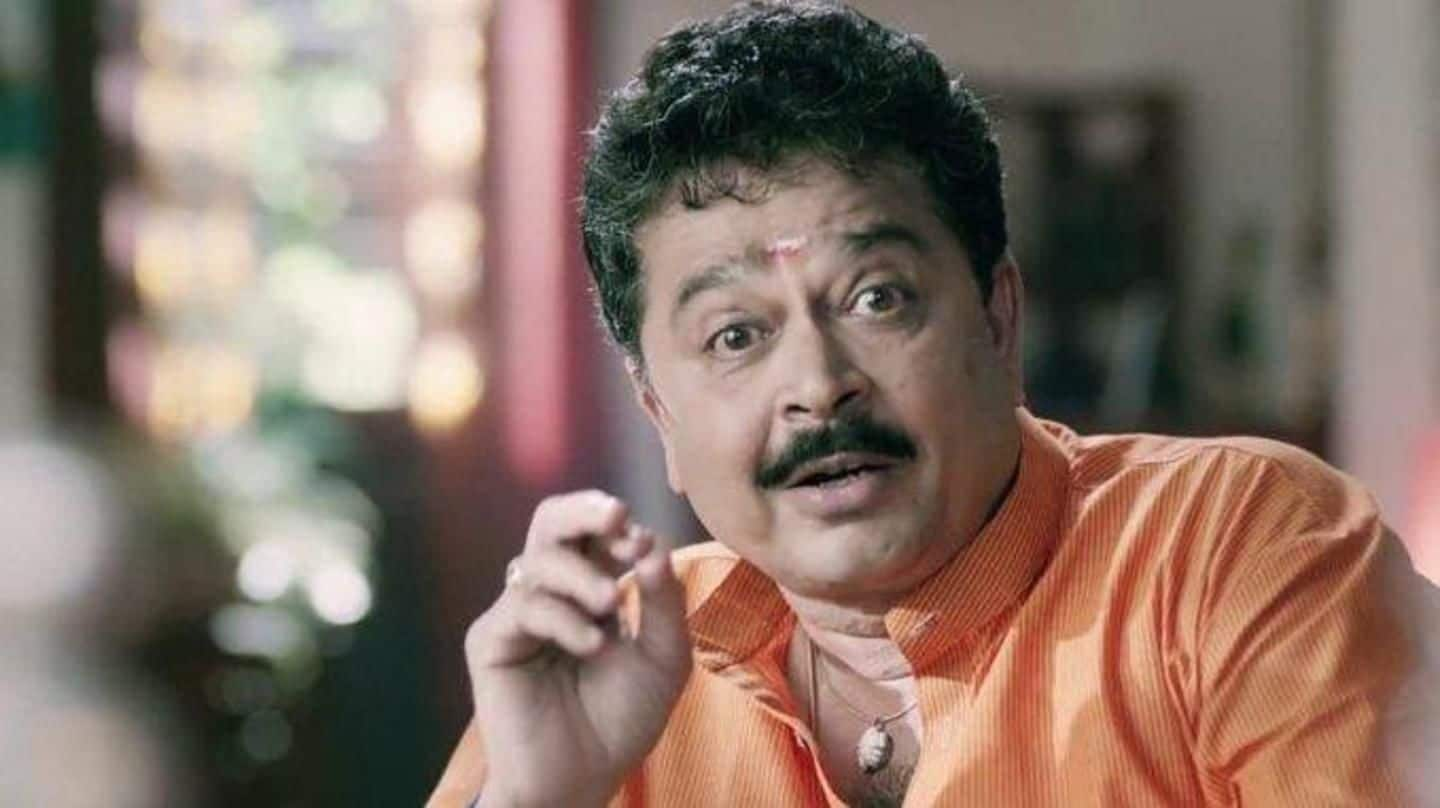
'Women-journos sleep around, why complain about patting cheeks?': BJP leader
What's the story
When TN Governor Banwarilal Purohit patted a female journalist's cheek at a press-conference, BJP leader S Ve Shekher thought it wasn't a big deal as 'women journalists are forced to sleep around anyway.' "It is actually the governor who has to wash his hands with Phenoyl after touching her," he wrote in a Facebook post. He has now apologized, but does it make sense?
Incident
When the governor thought it was okay to pat cheeks
Lakshmi Subramanian, a reporter from The Week, was at the conference where Purohit was addressing the Nirmala Devi controversy. When she asked him if he was satisfied with the university's performance, he patted her cheek instead. Incidentally, Devi, an assistant professor of Devanga Arts College, was in the news for asking girls to 'adjust' with higher officials for better grades.
Shekher
'You sleep around for work anyway, why complaining?': Shekher
Subramanian protesting the incident apparently irked Shekher, who alleged her intention was "to target the governor and Modi." He called mediapersons "cheap, disgusting creatures" who are "usually illiterate and don't have any general knowledge." "Recently this disgusting fact has come out that women cannot become reporters unless they sleep with bosses. And with these faces, they come out to ask questions to the governor."
Reax
Twitterati rise up in anger against Shekher for his comments
Twitterati was quick to point out that Shekher's allegations actually exposed sexual harassment. "According to @SVESHEKHER, women in media can be touched without consent because they are forced to sleep with powerful men at work anyway," said writer Sowmya Rajendran. "I want to ask women members of the BJP @VanathiBJP and @DrTamilisaiBJP why they think about such filth," TNM Editor Dhanya Rajendran said.
Twitter Post
YourStory journalist gets across a sarcastic message
Women are feeling more and more safe today and daily they hav to wake up seeing great thoughts and minds around. According to @SVESHEKHER qualification for a women to become a reporter In a media House is to sleep around with men. Feeling very Progressive #WTHSVeShekher
— Induja Ragunathan (@R_Induja) April 19, 2018
Apology
'I posted it by mistake': Shekher apologizes
Apologizing for the now-deleted post, Shekher issued a statement: "By mistake I forwarded (shared) a message without reading. When a friend pointed that the content was abusive, it was removed immediately." "I come from a family that respects women and women journalists. If I had hurt anyone in the very few minutes of that post, it was not on purpose and my heartfelt apology."
NB take
Is denying knowledge of own social-media posts an acceptable excuse?
Denying knowledge about posts shared on their walls after facing ire has unfortunately become a common occurrence for politicians. Earlier, it was H Raja, who called for destruction of Periyar statues in TN through Facebook. After protests, the post was withdrawn and he blamed his Facebook page admins for uploading it 'without his knowledge.' But rectification can only start with acceptance of the act.